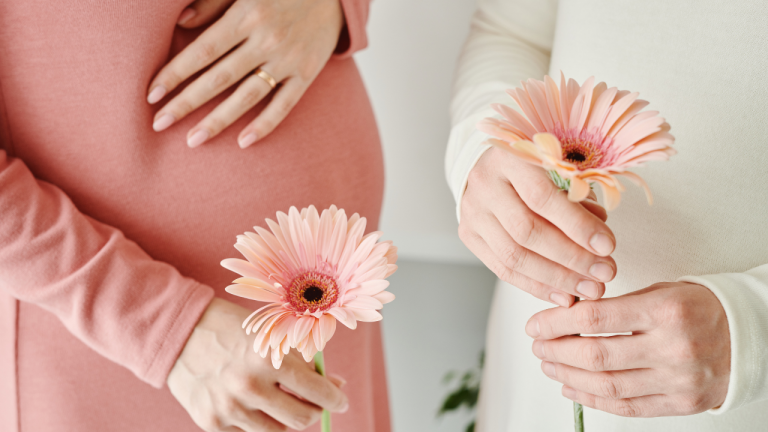What is Bloating and Pregnancy?

Bloating is a common symptom during pregnancy that many women experience. Bloating during pregnancy is caused by hormonal changes that occur in the body, which can lead to water retention and gas accumulation.
During pregnancy, the body produces higher levels of progesterone, which can cause the muscles in the digestive tract to relax. This can slow down digestion and lead to gas accumulation, which can cause bloating and discomfort. Additionally, the growing uterus can put pressure on the digestive tract, which can further slow down digestion and cause bloating.
Bloating during pregnancy is a normal symptom and is usually not a cause for concern. However, in some cases, bloating can be a sign of a more serious condition, such as pre-eclampsia or gestational diabetes. It is important to talk to a healthcare provider if bloating is accompanied by other symptoms, such as severe abdominal pain, fever, or vomiting.
To manage bloat during pregnancy, there are some things that can be done, such as:
Eating smaller, more frequent meals throughout the day instead of large meals.
Drinking plenty of water to help flush out excess fluids.
Avoiding foods that can contribute to gas, such as beans, cabbage, and broccoli.
Staying active by engaging in regular exercises, such as walking or prenatal yoga.
Wearing loose-fitting clothing to help reduce pressure on the abdomen.
In summary, bloating is a common symptom during pregnancy caused by hormonal changes in the body. While usually not a cause for concern, it is important to talk to a healthcare provider if bloating is accompanied by other symptoms. There are various ways to manage bloating during pregnancy, including eating smaller meals, drinking plenty of water, avoiding gas-forming foods, staying active, and wearing loose-fitting clothing.
How to Natural Treatment for Bloating in Pregnancy?
There are several natural treatments that can help alleviate bloating during pregnancy. Here are some suggestions:
Ginger: Ginger has natural anti-inflammatory properties that can help soothe digestive discomfort and reduce bloating. You can try adding ginger to your meals or drinking ginger tea.
Peppermint: Peppermint can help relax the muscles in the digestive tract, which can ease gas and bloating. You can drink peppermint tea or take peppermint oil capsules (under the guidance of your healthcare provider).
Fennel: Fennel seeds contain compounds that can help relieve gas and bloating. You can chew on fennel seeds or drink fennel tea.
Probiotics: Probiotics are beneficial bacteria that can help improve digestion and reduce bloating. You can find probiotics in fermented foods like yogurt, kefir, and sauerkraut or take a probiotic supplement (under the guidance of your healthcare provider).
Stay Hydrated: Drinking plenty of water can help flush out excess fluids and reduce bloating. Aim for at least 8-10 glasses of water per day.
Exercise: Regular exercise can help improve digestion and reduce bloating. Low-impact exercises like walking, swimming, and prenatal yoga are good options for pregnant women.
Eat small, frequent meals: Eating small, frequent meals throughout the day instead of large meals can help reduce bloating.
It is important to talk to your healthcare provider before trying any new treatments or supplements during pregnancy. If bloating is accompanied by other symptoms like severe abdominal pain, fever, or vomiting, it is important to seek medical attention.



